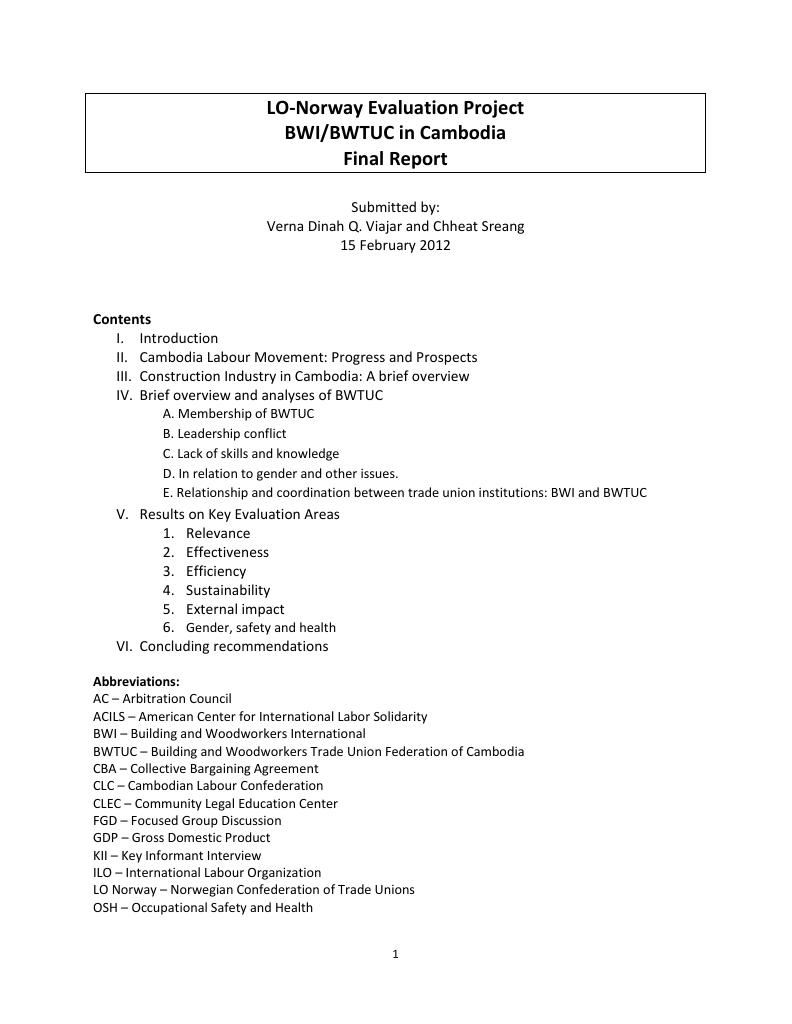Evaluering
Evaluation report of Building and Wood Workers International BWI/BWTUC, Cambodia
As of November 2011, BWTUC has 12 affiliate unions and three community-based unions in Siem Reap with a total membership of 2,189, with 567 or 26% of whom are female. The membership consists of 56% from building; 12% from building materials; 23% from wood and the other 8% from forestry. In terms of number of dues paying members, only 576 members pay dues out of the total 2,189 members or about 25% of total membership. The location of BWTUC affiliate unions are in Phnom Penh, Siem Reap and Kampot. BWTUC emerged from the merger of two key constructions unions in the country namely the Cambodia Construction Trade Union Federation (CCTUF), based in Siem Reap and the Cambodia Federation of Building and Woodworkers (CFBW) based in Phnom Penh. Five independent construction unions affiliated with the Cambodian Labour Confederation (CLC) also joined the BWTUC. The merger between CCTUF and CFBW to establish the BWTUC in 2009 is unprecedented and highly regarded as progress in the trade union movement of Cambodia. The emergence of BWTUC has been considered a model for trade union consolidation and a method to strengthen the trade union movement in the country. After three years of merger, the BWTUC is inundated with problems including diminishing membership, leadership conflict, and skills and knowledge deficit to develop 2nd line leadership potential to implement organizing, negotiation and advocacy-campaign roles of the union. The union federation is currently facing internal leadership conflict when on 13 November 2011, the majority of the Board of Directors decided to suspend the BWTUC President Sok Sovandeth. The internal conflict seems to emanate from lack of clarity on the roles and functions of the leadership structure and tension on decision-making powers between the key leaders of the union. There are still remnants of personalistic and economic opportunistic styles of leadership which needs to be addressed within the organization. At the local union level, workers’ knowledge remains limited as to what union is all about and what its members should/could expect from the union. In terms of education activities, BWTUC mainly conducts basic labor orientation and para-legal workshops for its members. While these types of workshops need to be continued, advanced skills trainings in leadership, union administration, financial management and education trainings are needed to enhance the knowledge and skills of the leadership and members.
